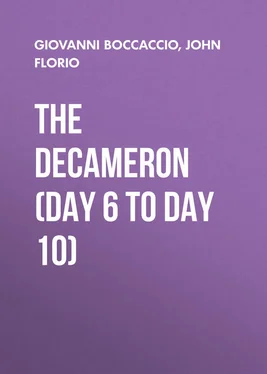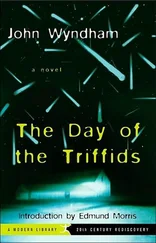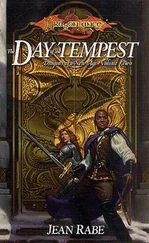John Florio - The Decameron (Day 6 to Day 10)
Здесь есть возможность читать онлайн «John Florio - The Decameron (Day 6 to Day 10)» — ознакомительный отрывок электронной книги совершенно бесплатно, а после прочтения отрывка купить полную версию. В некоторых случаях можно слушать аудио, скачать через торрент в формате fb2 и присутствует краткое содержание. ISBN: , Жанр: foreign_antique, foreign_prose, на английском языке. Описание произведения, (предисловие) а так же отзывы посетителей доступны на портале библиотеки ЛибКат.
- Название:The Decameron (Day 6 to Day 10)
- Автор:
- Жанр:
- Год:неизвестен
- ISBN:http://www.gutenberg.org/ebooks/52618
- Рейтинг книги:3 / 5. Голосов: 1
-
Избранное:Добавить в избранное
- Отзывы:
-
Ваша оценка:
- 60
- 1
- 2
- 3
- 4
- 5
The Decameron (Day 6 to Day 10): краткое содержание, описание и аннотация
Предлагаем к чтению аннотацию, описание, краткое содержание или предисловие (зависит от того, что написал сам автор книги «The Decameron (Day 6 to Day 10)»). Если вы не нашли необходимую информацию о книге — напишите в комментариях, мы постараемся отыскать её.
The Decameron (Day 6 to Day 10) — читать онлайн ознакомительный отрывок
Ниже представлен текст книги, разбитый по страницам. Система сохранения места последней прочитанной страницы, позволяет с удобством читать онлайн бесплатно книгу «The Decameron (Day 6 to Day 10)», без необходимости каждый раз заново искать на чём Вы остановились. Поставьте закладку, и сможете в любой момент перейти на страницу, на которой закончили чтение.
Интервал:
Закладка:
Giovanni Boccaccio
The Decameron (Day 6 to Day 10) / Containing an hundred pleasant Novels
TO THE RIGHT HONOURABLE Sir Phillip Herbert,
Having (by your Honorable command) translated this Decameron, or Cento Novelle, sirnamed Il Principe Galeotto, of ten dayes severall discourses, grounded on variable and singuler Arguments, happening betweene seaven Noble Ladies, and three very Honourable Gentlemen: Although not attyred in such elegantcy of phrase, or nice curiosity of stile, as a quicker and more sprightly wit could have performed, but in such home-borne language, as my ability could stretch unto; yet it commeth (in all duty) to kisse your Noble hand, and to shelter it selfe under your Gracious protection, though not from the leering eye, and over-lavish tongue of snarling Envy; yet from the power of his blasting poyson, and malice of his machinations.
To the ReaderBookes (Courteous Reader) may rightly be compared to Gardens ; wherein, let the painfull Gardiner expresse never so much care and diligent endeavour; yet among the very fairest, sweetest, and freshest Flowers, as also Plants of most precious Vertue; ill favouring and stinking Weeds, fit for no use but the fire or mucke-hill, will spring and sprout up. So fareth it with Bookes of the very best quality, let the Author bee never so indulgent, and the Printer vigilant: yet both may misse their ayme, by the escape of Errors and Mistakes, either in sense or matter, the one fault ensuing by a ragged Written Copy; and the other thorough want of wary Correction. If then the best Bookes cannot be free from this common infirmity; blame not this then, of farre lighter argument, wherein thy courtesie may helpe us both: His blame, in acknowledging his more sufficiency, then to write so grosse and absurdly: And mine, in pardoning unwilling Errors committed, which thy judgement finding, thy pen can as easily correct.
Farewell.
The Table
The Dedication. TO THE RIGHT HONOURABLE Sir Phillip Herbert, Knight, Lord Baron of Sherland, Earle of Montgomery, and Knight of the most Noble order of the Garter Having (by your Honorable command) translated this Decameron, or Cento Novelle, sirnamed Il Principe Galeotto, of ten dayes severall discourses, grounded on variable and singuler Arguments, happening betweene seaven Noble Ladies, and three very Honourable Gentlemen: Although not attyred in such elegantcy of phrase, or nice curiosity of stile, as a quicker and more sprightly wit could have performed, but in such home-borne language, as my ability could stretch unto; yet it commeth (in all duty) to kisse your Noble hand, and to shelter it selfe under your Gracious protection, though not from the leering eye, and over-lavish tongue of snarling Envy; yet from the power of his blasting poyson, and malice of his machinations. To the Reader Bookes (Courteous Reader) may rightly be compared to Gardens ; wherein, let the painfull Gardiner expresse never so much care and diligent endeavour; yet among the very fairest, sweetest, and freshest Flowers, as also Plants of most precious Vertue; ill favouring and stinking Weeds, fit for no use but the fire or mucke-hill, will spring and sprout up. So fareth it with Bookes of the very best quality, let the Author bee never so indulgent, and the Printer vigilant: yet both may misse their ayme, by the escape of Errors and Mistakes, either in sense or matter, the one fault ensuing by a ragged Written Copy; and the other thorough want of wary Correction. If then the best Bookes cannot be free from this common infirmity; blame not this then, of farre lighter argument, wherein thy courtesie may helpe us both: His blame, in acknowledging his more sufficiency, then to write so grosse and absurdly: And mine, in pardoning unwilling Errors committed, which thy judgement finding, thy pen can as easily correct. Farewell.
To the Reader To the Reader Bookes (Courteous Reader) may rightly be compared to Gardens ; wherein, let the painfull Gardiner expresse never so much care and diligent endeavour; yet among the very fairest, sweetest, and freshest Flowers, as also Plants of most precious Vertue; ill favouring and stinking Weeds, fit for no use but the fire or mucke-hill, will spring and sprout up. So fareth it with Bookes of the very best quality, let the Author bee never so indulgent, and the Printer vigilant: yet both may misse their ayme, by the escape of Errors and Mistakes, either in sense or matter, the one fault ensuing by a ragged Written Copy; and the other thorough want of wary Correction. If then the best Bookes cannot be free from this common infirmity; blame not this then, of farre lighter argument, wherein thy courtesie may helpe us both: His blame, in acknowledging his more sufficiency, then to write so grosse and absurdly: And mine, in pardoning unwilling Errors committed, which thy judgement finding, thy pen can as easily correct. Farewell.
Wherein the Discourses or Novels there to bee recounted, doe concerne such persons; who by some witty words (when any have taunted them) have revenged themselves, in a sudden, unexpected and discreet answere, thereby preventing losse, danger, scorne and disgrace, retorting them on the busi-headed Questioners.
A Knight requested Madame Oretta, to ride behinde him on horsebacke, and promised, to tell her an excellent Tale by the way. But the Lady perceiving, that his discourse was idle, and much worse delivered: entreated him to let her walke on foote againe.
Reprehending the folly of such men, as undertake to report discourses, which are beyond their wit and capacity, and gaine nothing but blame for their labour.
Cistio a Baker, by a witty answere which he gave unto Messer Geri Spina, caused him to acknowledge a very indiscreet motion, which he had made to the said Cistio.
Approving, that a request ought to be civill, before it should be granted to any one whatsoever.
Madam Nonna de Pulci, by a sodaine answere, did put to silence a Bishop of Florence, and the Lord Marshall: having mooved a question to the said Lady, which seemed to come short of honesty.
Wherein is declared, that mockers doe sometimes meet with their matches in mockery, and to their owne shame.
Chichibio, the Cooke to Messer Currado Gianfiliazzi, by a sodaine pleasant answere which he made to his Master; converted his anger into laughter, and thereby escaped the punishment, that Messer meant to impose on him.
Whereby plainely appeareth, that a sodaine witty, and merry answere, doth oftentimes appease the furious choller of an angry man.
Messer Forese da Rabatte, and Maister Giotto, a Painter by his profession, comming together from Mugello, scornefully reprehended one another for their deformity of body.
Whereby may be observed, that such as will speake contemptibly of others, ought (first of all) to looke respectively on their owne imperfections.
A young and ingenious Scholler, being unkindly reviled and smitten by his ignorant Father, and through the procurement of an unlearned Vicare; afterward attained to bee doubly revenged on him.
Читать дальшеИнтервал:
Закладка:
Похожие книги на «The Decameron (Day 6 to Day 10)»
Представляем Вашему вниманию похожие книги на «The Decameron (Day 6 to Day 10)» списком для выбора. Мы отобрали схожую по названию и смыслу литературу в надежде предоставить читателям больше вариантов отыскать новые, интересные, ещё непрочитанные произведения.
Обсуждение, отзывы о книге «The Decameron (Day 6 to Day 10)» и просто собственные мнения читателей. Оставьте ваши комментарии, напишите, что Вы думаете о произведении, его смысле или главных героях. Укажите что конкретно понравилось, а что нет, и почему Вы так считаете.












